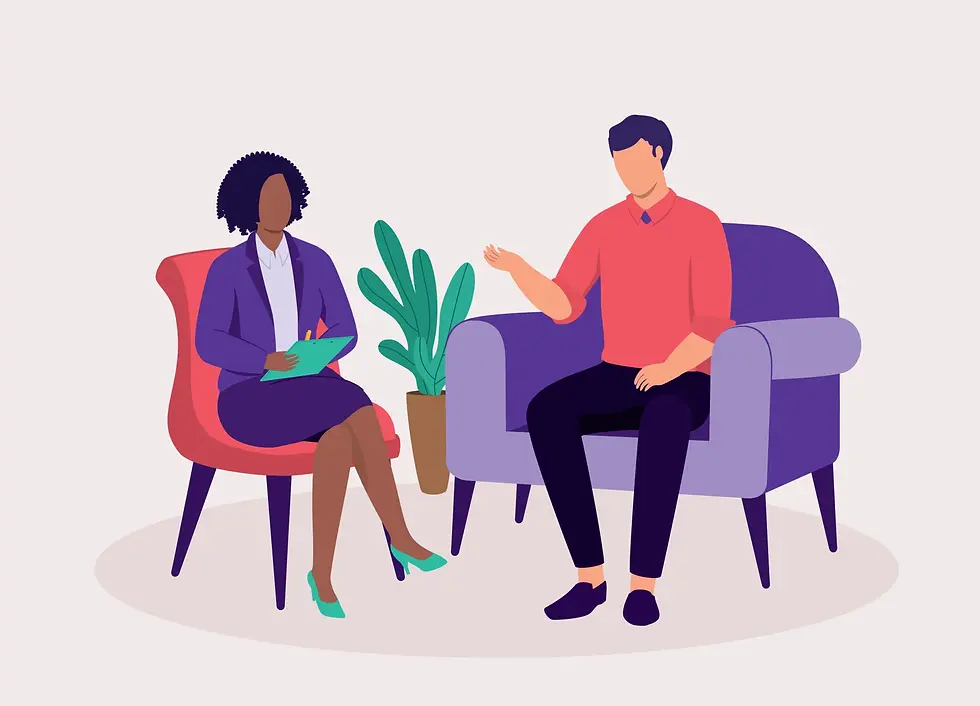The Hidden Toll of Social Media on Mental Health: Teens and Adults in Crisis
- Allison McCue-Napoli
- Jan 23
- 3 min read

In today’s hyperconnected world, social media platforms have become integral to our daily lives. From sharing snapshots of our day to staying informed about current events, platforms like Instagram, TikTok, Facebook, and Twitter (now X) provide countless opportunities for connection and communication. However, behind the polished posts and viral trends lies a darker reality: the significant toll social media can take on mental health. This issue affects teenagers and adults, though its manifestations and impacts often differ across age groups.
The Pressure of Perfection
One of the most pervasive issues associated with social media is the unrealistic standard of perfection it promotes. Scrolling through feeds filled with flawless selfies, luxury lifestyles, and picture-perfect relationships can create a skewed sense of reality for teens. This often leads to feelings of inadequacy, low self-esteem, and body image issues. Studies have shown a strong correlation between heavy social media use and rising rates of anxiety, depression, and eating disorders among adolescents.
Adults, too, are not immune. While they may be less influenced by peer pressure, adults often experience a different kind of stress: the pressure to project success and stability. The constant comparison to others—career achievements, parenting milestones, or financial status—can exacerbate feelings of failure and dissatisfaction.
The Loneliness Paradox
Social media was designed to bring people closer together, but ironically, it can often have the opposite effect. Teens already navigating the complexities of identity and belonging may feel more isolated despite their online interactions. The lack of genuine, face-to-face connections can lead to loneliness and even social anxiety.
Adults, who might turn to social media to stay connected amid busy schedules, often report feeling disconnected after scrolling through their feeds. The curated nature of social media interactions can make meaningful connections feel superficial, leaving users feeling lonelier than before.
Sleep Disruption and Overstimulation
Another significant impact of social media is its interference with sleep. Teens are particularly vulnerable, as they often engage in late-night scrolling, sacrificing rest for online interactions. Poor sleep hygiene not only exacerbates mental health issues like anxiety and depression but also affects cognitive functioning, academic performance, and overall well-being.
For adults, constant notifications and the pressure to stay “plugged in” can lead to chronic overstimulation. This hyperconnectivity leaves little room for mental downtime, increasing stress levels and contributing to burnout.
The Role of Algorithms
One of the less obvious culprits in the social media-mental health equation is the role of algorithms. These platforms are designed to maximize engagement, often by prioritizing sensational, controversial, or emotionally charged content. For teens, this can mean exposure to harmful trends, cyberbullying, or unrealistic portrayals of life. Adults may find themselves caught in echo chambers that amplify anxiety, anger, or feelings of helplessness.
Steps Toward Healthier Social Media Use
While the negative impacts of social media are undeniable, there are ways to mitigate these effects:
Set Boundaries: Establish specific times for social media use and avoid using it before bed.
Curate Your Feed: Follow accounts that inspire and uplift you, and unfollow those that trigger negative emotions.
Prioritize Real-Life Connections: Make time for face-to-face interactions with friends and family.
Take Digital Detoxes: Periodically step away from social media to recharge and refocus.
Seek Professional Help: If social media use is significantly affecting your mental health, consult a therapist or counselor.








Comments